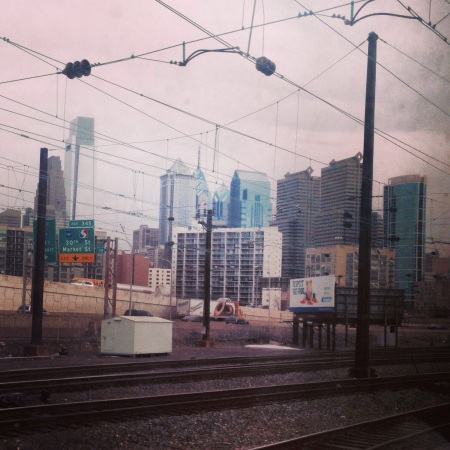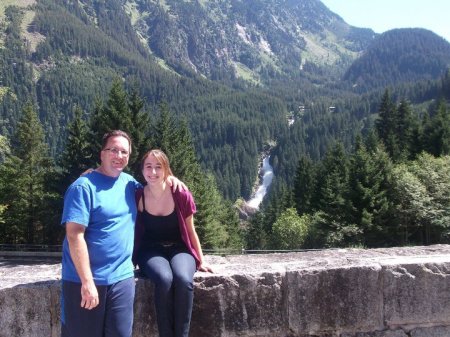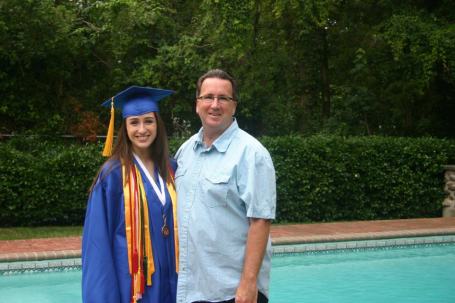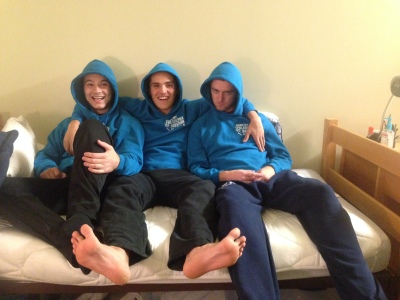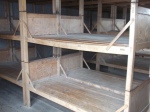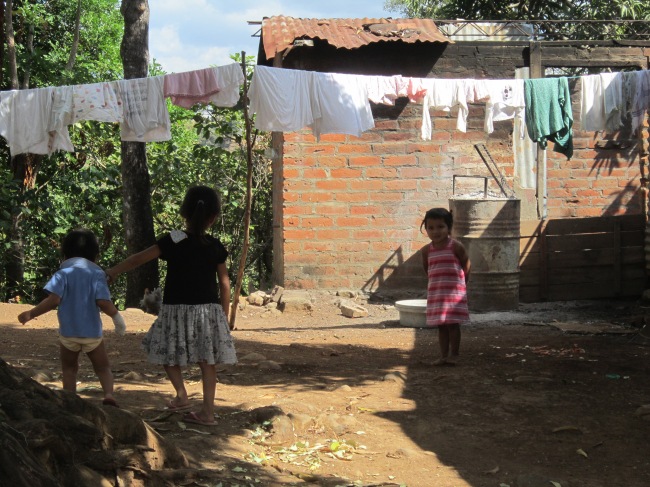The doors swing open and I choke on deodorant and dust. I am on a quest. To my left: rows of men’s button-down shirts squeezed together on racks separated by size. Pastel blues and plaids and animal stripes and gingam prints scream out from the metal limbs, but each individual piece of clothing is stifled by the ludicrous combination of colors and patterns. I thumb through the fabric and skim over brand names. Every now and then I tug a shirt from the masses. Oh, this one is perfect for him for Date Party!
“I will not wear a pink shirt,” Andrew backs away cautiously when I hold a shirt up for his approval. I giggle and wave the shirt at him.
“Come on, amuse me,” I plead as I try to hold back my laughter. “It’s a great shade for your complexion.”
Andrew winces and reaches for the shirt. It is a light pink Ralph Lauren shirt with white pinstripes. $12, no stains, only a little wrinkled.
I think about the confidence of the man who owned this shirt. He is probably Andrew’s height, 6’0″, give or take an inch or two. The man has bright eyes that open wider when he grins. He is completing a co-op program at an investment firm where his boss already lined up a permanent position for him post-graduation. He is popular, plays center on the club lacrosse team, and studied abroad in London. He throws his head back and sings Katy Perry songs when he gets too drunk. He has lots of friends. He is ambitious.
Or.
He is shy. He bought this shirt on a whim, hoping it might make him feel less like wallflower at the next house party. He pairs the shirt with the nice corduroy pants his mom bought him for Christmas and brown loafers. He is pale. He wonders if the creamy pink makes his skin look jaundiced and bleak. He spends an hour pacing around his apartment, trying to assimilate into the shirt as if it is a skin graft from another body. He finally peels the shirt off and slides a comfortable grey t-shirt over his mess of brown curls. The next morning he sells the pink pin-striped shirt to the consignment store in center city on Chestnut Street. He uses the cash to get a haircut.
I wonder where this shirt has traveled, if it has traveled much of anywhere at all. Andrew tries it on and insists that it is not his color. He returns it to the rack.
To my right: sun hats and belts and scarves and a pair of authentic cowgirl boots. A circular sticker reads $17 in red Sharpie print on the side of the left boot. I lift the boots and examine them under the industrial lighting. Faded brown leather, scuffed soles, tubes that bend and flop over like wilted flower stems, but I love them. I imagine the type of woman that might have worn these boots. She is a creature of habit; she wore her boots everywhere she went, so often that the original color of the bottoms are now completely scraped away. She takes her shots without chasers. She is a loyal friend. She drives a silver Jeep Wrangler and owns a guitar, but doesn’t know how to play anything besides Smoke on the Water. She wants to run for public office someday.
I could be wrong. Maybe she bought a pair of cowgirl boots for a Blake Shelton concert that her friends badgered her into attending even though she doesn’t really like country. Maybe she wore the boots for one night and passed them on to someone else who would wear them through the summer until the leaves hardened and crinkled, until the air grew heavy and cold, until that person decided to trade in the cowgirl boots for a pair of sturdy snow boots.
The only thing I can know for sure about the boots’ owner is that she is a size 7, one size too small for my feet. I reluctantly set the boots back on their shelf and force myself to head to the back of the store.
Don’t forget your quest.
I shimmy in and out of one skirt, one dress, and a pair of high-waisted jean shorts. I shout to Andrew in the dressing room next to mine and ask him how his button-down-shirt-hunt is going. He finally settles on a blue Nordstrom shirt with white pinstripes. I agree that blue suits him best.
On my way out of the dressing room, I stop so abruptly that I nearly trample a little boy chasing his HotWheels car on the tiles. The arm of a chalky blue Levi Strauss denim jacket reaches out toward me from the rack of rejected clothes outside the dressing room. I’ve never found a denim jacket that was comfortable enough to keep. Is this the final destination, the scarlet X on my treasure map?
“Can you drive a car?” my mom always asks when I try on a jacket. I lift my arms up and twist them while I grip an imaginary steering wheel. Too tight. Too stiff. Not enough give.
I’m afraid of getting my hopes up, but my heart starts to skip. I try the jacket on behind the red velvet curtain in the dressing room and look in the mirror. I can lift my arms and pretend to drive a car. I can cuff up the sleeves. I can flex my shoulders, raise my fingertips to the ceiling, stretch to my head, shoulders, knees and toes, knees and toes. I hug myself.
The man or woman who owned this jacket is creative. When that person owned this jacket, he or she was able to dress any outfit down with the light-blue denim or add an edgy flare to a plain white t-shirt. That person must be constant. That person must believe very deeply in something. That person must nurture a talent that has likely gone unappreciated or unnoticed for far too long. That person must have loved too much, kissed too hard, committed to a heart that already belonged to someone else. That person understands survival, taking the next breath, waking up, enduring. That person is worn yet resilient from his or her experiences, just like this jacket. Andrew buys it for me as a gift. I don’t stop smiling after we leave the store and head to the train station to return to campus.
I wear the jacket every chance I get: to class, to the Sweet Greens salad bar, to Andrew’s apartment, to the library, and even in bed while I write a political science paper. I wear the jacket at a barbecue on the lawn next to the university chapel. I leave the jacket on a table while I run off to greet a group of friends that had just arrived. I’m not sure if I brought the jacket home with me or left it in my friend’s car or forgot it at the barbecue, but it’s gone. I’ve turned my closet-upside down. I’ve spent hours digging through bedding and clothes in my room. I’ve crawled under my bed, pushed back the sofa, emptied my hamper, surveilled the laundry room, until I came to the realization that, likely, my jacket is no longer my jacket.
“I could have sworn I had it with me after the barbecue,” I whimper to Andrew on the phone. “That was my favorite piece of clothing!”
He tells me not to be upset. He offers to help me find another jacket. I don’t want another jacket. I want that jacket. I feel foolish and careless. I wore the jacket too much. I took it for granted, and the undertow of my hectic life swept it away.
Or maybe the jacket was destined to move from one body to the next like a river over pebbles.
Perhaps someone else picked up my jacket and decided to hold onto it. I wonder if the jacket fit. I wonder what the person thought of the jacket’s previous owner. I wonder if that description fit too.



